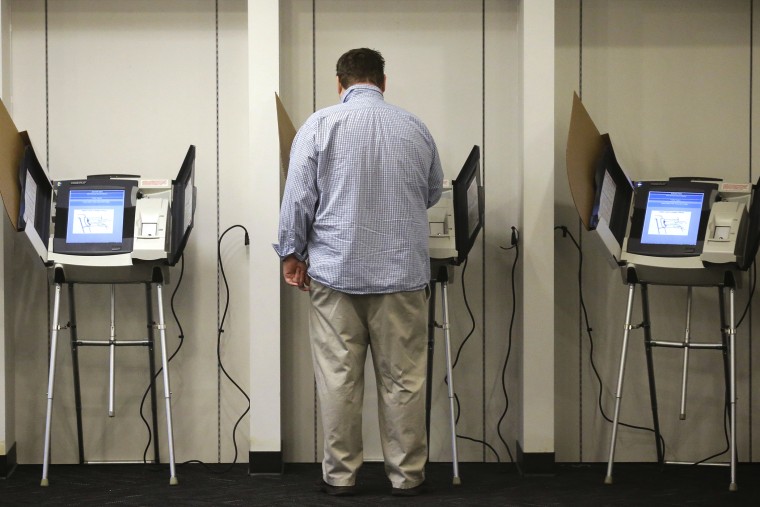On a variety of fronts, Republican officials responded to the 2018 elections by taking deliberate steps to undo what voters had done. In Wisconsin and Michigan, that meant stacking the policymaking deck to undermine incoming Democratic officials; in Missouri, it meant weakening an ethics-reform package; and in Utah, it meant scaling back a Medicaid-expansion measure approved by the state's voters.
As the Salt Lake Tribune reported this week, GOP lawmakers in the state are nearly done undoing what their own state's voters did.
Utah Senators voted 22-7 on Monday for SB96, sending to the House a replacement Medicaid expansion plan that initially costs considerably more money to cover fewer people than the voter-approved Proposition 3, and which would automatically repeal itself if the state fails to receive funding waivers from the federal government. [...]Republican senators argued that despite majority approval by voters, Proposition 3 does not pay for itself over time and must be contained to protect the state's budget.
The Center on Budget and Policy Priorities published a brief report yesterday, explaining that the voter-approved policy would extend Medicaid coverage to roughly 150,000 low-income Utahns, but the Republican replacement would cover "48,000 fewer Utahans and would cost the state $50 million more over the next two years."
Complicating matters, the GOP plan includes an awkward trigger mechanism: Utah would request waivers from federal officials, seeking permission to apply harsh eligibility restrictions. If federal officials balk, under the Republican proposal, the entire Medicaid expansion initiative would immediately disappear.
At face value, the legislative effort reflects an obvious hostility toward health care benefits, but let's not miss the forest for the trees: it also points to antagonism toward democracy. Voters in Utah approved Medicaid expansion. Republican legislators in Utah have responded by effectively asking those same voters, "Who put you in charge?"
Making matters slightly worse, we're seeing a similar dynamic unfolding in Idaho, where an even larger majority of the state's voters approved a ballot measure to expand Medicaid, but where the Republican-led legislature is nevertheless moving forward with legislation to impose eligibility restrictions that differ from the policy approved by the electorate.
The day after the midterm elections, I took note of the significant progress voters made on health care. Apparently, I didn't fully account for Republicans' willingness to defy voters' will.
